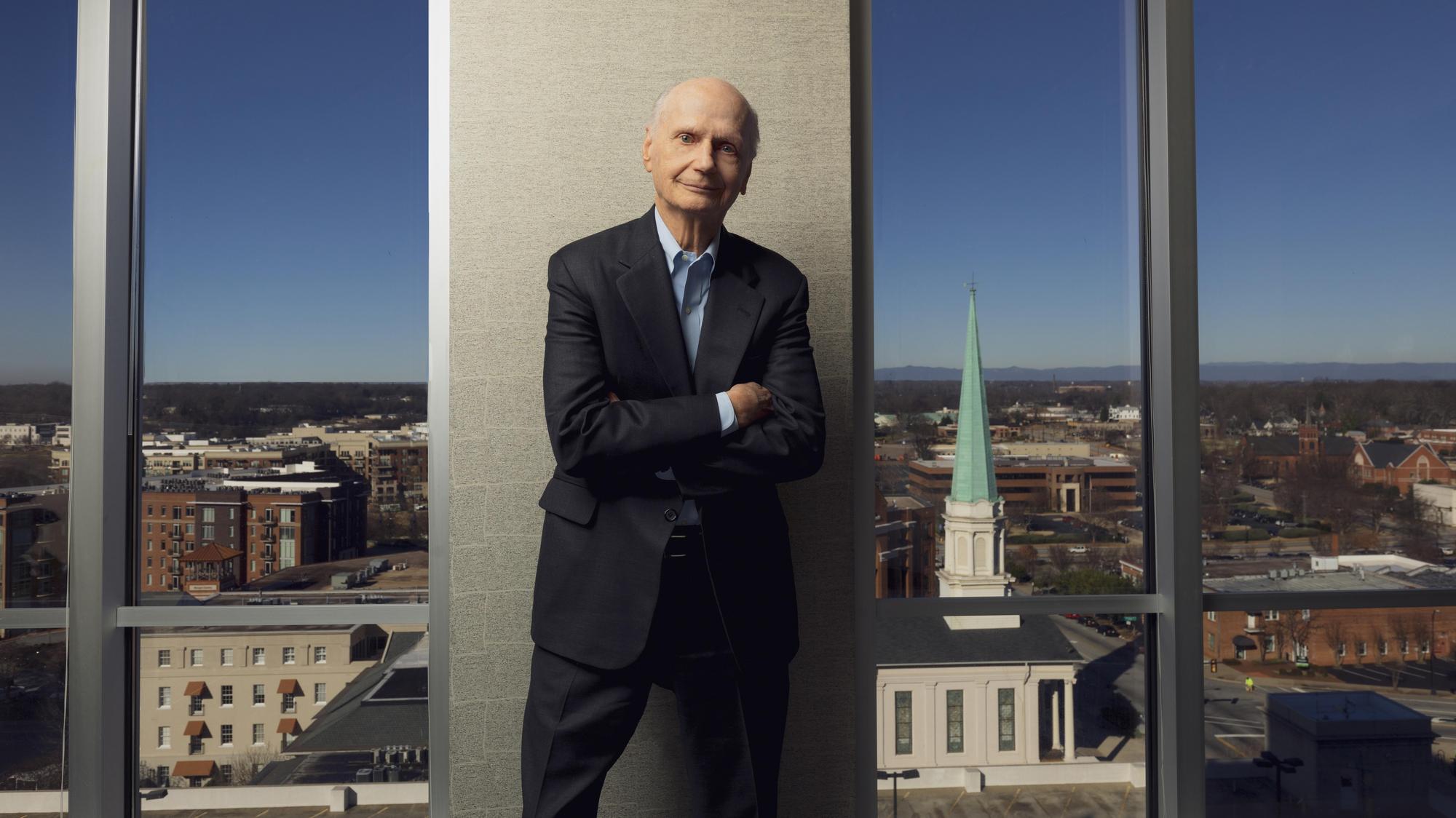Five life lessons from Riley’s 90 remarkable years

On Jan. 2, 2023, Richard “Dick” Riley ’54, former South Carolina governor (1979–1987) and U.S. secretary of education (1993–2001), celebrated his 90th birthday. His dedication to public service has stretched far beyond his 38 years in government, and evidence of his work is apparent today throughout his home state and his alma mater. Riley’s 1984 Education Improvement Act left a profound impact on the state’s public schools. The Riley Institute, founded in 1999, has benefited thousands of students, professionals and communities. And through his work as a senior partner of the law firm Nelson Mullins Riley & Scarborough and its affiliate, EducationCounsel, Riley continues his mission to improve education for all. He recently reflected on the past nine decades and his hopes for the years yet to come.
What is one long-held principle that has guided you over the years?
“I believe in the absolute importance of quality public schools for all children. My work has always been in public schools. My father, Edward Riley, represented the school district as Greenville County attorney, and as a young lawyer and member of the South Carolina Legislature, I worked closely with him on the ground floor on problems the school board was dealing with. That gave me a great background to understand public schools and their complications and things to do to improve them.
It’s so important to help leaders understand the absolute critical nature of quality public schools. It deals with the economy, it deals with safety, it deals with health, it deals with a good life for people.”
Have you ever changed your mind about something important?
“On the board of the education nonprofit KnowledgeWorks, I got involved in project-based learning, which emphasizes doing in addition to learning. That, to me, was the direction to go – keep high standards, but also let students work and in the process learn what they need to learn. I also emphasized STEM in all schools, not only in project-based schools. That has become an emphasis in this country. In today’s world, if you aren’t into science and technology and math, you miss out. But that was a change in my direction. As secretary of education, I was trying to flow with where the country was moving and stress the kinds of things that could make some practical value along with higher academics.”
What is one mistake you’ve made, and what did you learn from it?
“When I was in the first grade at Donaldson Elementary School here in Greenville, we were going to have a class play about safety. And I was named to be the red light. It made me very nervous, getting in front of the class, and I made a big deal out of it. My mother made me a suit, kind of like a clown suit, with puffed-up arms and a big red dot in the middle. My lines were, ‘I’m a red light as you can see, and you’d better stop when you see me,’ emphasizing ‘stop.’
That morning, my father decided that since I was going to perform, I would eat a lot of breakfast. Two eggs, the whole deal. And so, when the time came for me to perform, I stepped back up behind the curtain and threw up. That was a big lesson to me: Don’t ever get up to perform when you’ve been overeating. Before you get out there, make sure that you feel good.”
What advice would you give to someone who hopes to live a long, meaningful life?
“I’m a strong believer in positive thinking and kindness. When you think positively, you get things done. South Carolina’s Education Improvement Act, for example, made a positive feeling in the whole state, from the mountains to the seashore. People on the street were supporting the penny sales tax. Nobody had ever supported a tax in South Carolina. And you know, it was a very good feeling.
And the ideal that I have when I talk to my children is to respect all people. When a young person is kind to other people, that starts in kindergarten. The greatest characteristic of a person who makes a good citizen is being kind to others regardless of economics or disability or whatever.”
What was one of your best decisions, and why do you feel that way?
“When I was elected governor, I wanted to do something big for education. Everybody was kind of ‘for education’ – you could get a small piece of legislation passed just like that. But that wasn’t enough. We wanted to do big things and get people really tuned in to education. And I made the decision that, because people oppose taxes normally, if we were going to be successful, I had to lead a movement. A movement can seem so big that you can’t feel like you can get into it, but this was a movement that everybody was involved in, including children and students. I think that was a good decision for the state. Frankly, I would even do it again.
Also, I married a wonderful person in Tunky (Ann “Tunky” Riley, who died in 2008). She was a wonderful first lady, probably the most popular one in my lifetime. Decisions like that have been important.”